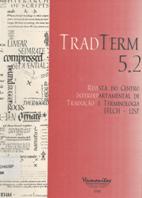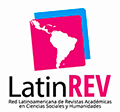Translation and teaching: humour taken seriously
DOI:
https://doi.org/10.11606/issn.2317-9511.tradterm.1998.49555Keywords:
Translatability, humorous discourse, ambiguity, pivô, joke.Abstract
This article is a reply to Professor Adauri Brezolin's paper (TradTerm 4.1), 1997) in which he makes some observations about my paper (TradTerm 3, 1996) dealing with the difficulty of translating humorous discourse in the form of jokes and puns. Brezolin and I agree that it is possible to translate jokes that are based on contexts that reflect the workings of the world. However, we disagree with respect to the possibility of translating humor that is caused by semantic, syntactic or phonological ambiguity. My purpose in this paper is to argue more emphatically that jokes and puns based on the play of words specific to a particular source language are untranslatable and the translator has no choice but to (re)create or retrieve from her stock of humorous discourse, "another" joke in a particular target language.This translation stance is due to the linguistic facts that are part and parcel of each language, that is, to the structural components peculiar to language x in contrast with language y, and is not motivated by an ideology that considers the possible meanings of the original text as untouchable which must be protected at all cost.
Downloads
Download data is not yet available.
Downloads
Published
1998-04-18
Issue
Section
Translation
License
Autores que publicam nesta revista concordam com os seguintes termos:
- Autores mantém os direitos autorais e concedem à revista o direito de primeira publicação, com o trabalho simultaneamente licenciado sob a Licença Creative Commons Attribution BY-NC-SA que permite o compartilhamento do trabalho com reconhecimento da autoria e publicação inicial nesta revista.
- Autores têm autorização para assumir contratos adicionais separadamente, para distribuição não-exclusiva da versão do trabalho publicada nesta revista (ex.: publicar em repositório institucional ou como capítulo de livro), com reconhecimento de autoria e publicação inicial nesta revista.
- Autores têm permissão e são estimulados a publicar e distribuir seu trabalho online (ex.: em repositórios institucionais ou na sua página pessoal) a qualquer ponto antes ou durante o processo editorial, já que isso pode gerar alterações produtivas, bem como aumentar o impacto e a citação do trabalho publicado (Veja O Efeito do Acesso Livre).
How to Cite
Schmitz, J. R. (1998). Translation and teaching: humour taken seriously. TradTerm, 5(2), 41-54. https://doi.org/10.11606/issn.2317-9511.tradterm.1998.49555








